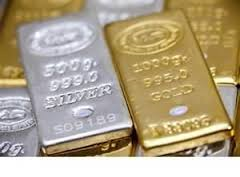
The Utah Legal Tender Act of 2011 codified the idea that gold and silver coins minted by the United States are legal forms of exchange. Yet, the idea is not new. The founders of the Constitution of the United States confirmed the use of gold and silver because they clearly saw the need for a stable monetary exchange system. In Section 10 of Article I of the Constitution, they wrote, and the states ratified the following: “Section. 10. No State shall…; make any Thing but gold and silver Coin a Tender in Payment of Debts; …”
Lawrence Hilton, Esq., the Legal Tender Act citizen sponsor, leads the Utah Precious Metals Association (UPMA), a “natural outgrowth” of the Legal Tender Act. The goal of the UPMA is to promote “the wide circulation and use of precious metal legal tender.” Mr. Hilton says there has “definitely” been an increase in the use of precious metal coins since February, 2013 when UPMA began the Liquid Gold Program. The Liquid Gold program allows people to pay for things and save using gold. In fact, all of their bills can be paid with their liquid gold account.
Mr. Hilton confirmed that the U.S. Constitution is quite clear, reserving the authority of the people in the states to exchange gold and silver for the payment of debts. He says that the authors of the Constitution were very much influenced by their own experience with fiat (paper) money. During the Revolutionary War, there was hyper inflation (5,000 per cent) for a period of 8 years, contributing to the common phrase, “not worth a Continental.” General George Washington’s army was going to disband for lack of effective pay, when John Hancock came to the rescue, bringing with him a pot of gold to pay the soldiers, and kept the army together. Also, one big reason for the Constitutional Convention was to prevent the pain they had all felt due to unsound monetary policy.
We face the same problems today, as they did then. Mr. Hilton says that “absolutely” the same reasons for having gold and silver coinage as the basis for our monetary system are applicable today. Utah and Oklahoma currently recognize U.S. minted gold and silver coins as legal tender. Colorado and Missouri recognized precious metal coins in the past, and Mr. Hilton says that other states are considering recognizing gold and silver as legal tender. Mr. Hilton hopes that confidence in the American monetary system can be restored so that people will once again say that our legal currency is “as good as gold.”
UPMA would like to invite the public to the Monetary Summit at the University of Utah on September 5th from noon until 5 pm. Attorney General Sean Reyes will be there, as well as many notable experts on ‘Sound Money’ from around the country. The event is free to the public, and Mr. Hilton says that it is unlikely that so many Sound Money monetary experts will be together again for a long time.
Although the movement to recognize gold and silver as legal tender is gathering momentum and strength, there is not currently enough people and merchants engaged in trading using sound money to reach a critical mass. Mr. Hilton says that if people will embrace the use of sound money, they can help strengthen the economy. People can call toll free, 1-888-210-8488 to learn more or join the Liquid Gold Program, and can check out the website at UPMA.org.